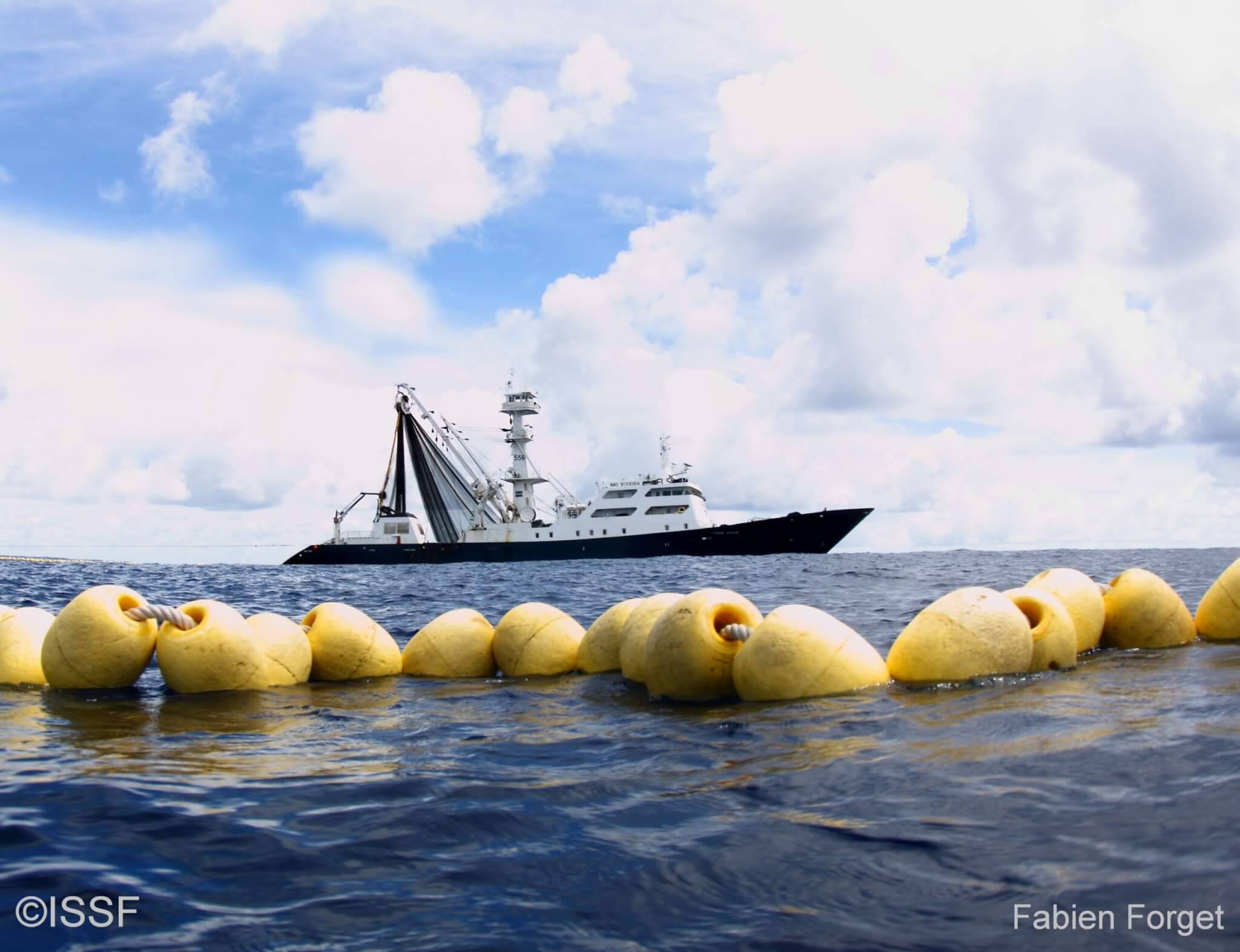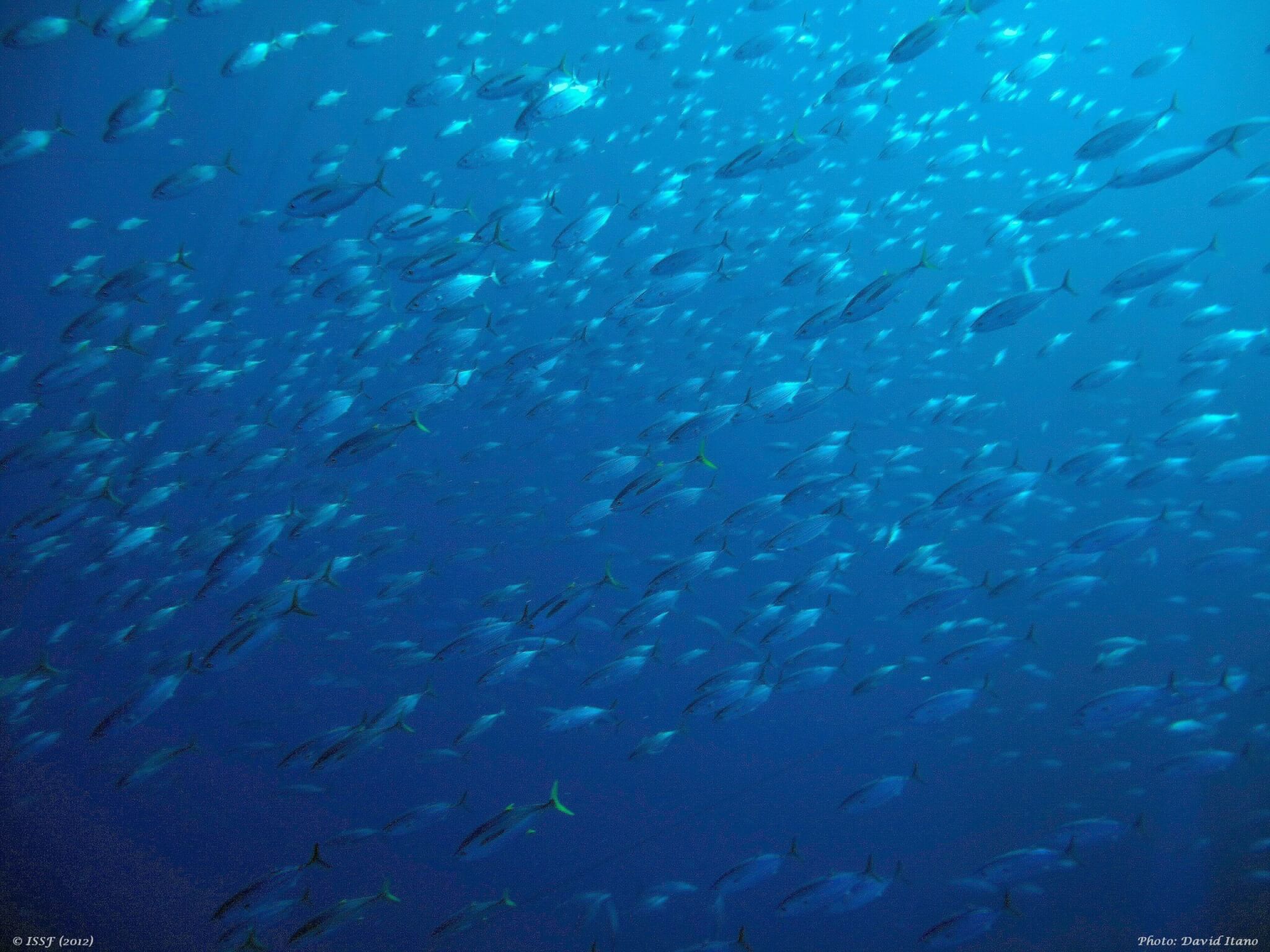ISSF: A holistic approach to ending IUU
Posted by Miguel Jorge
2 July 2014
Miguel Jorge is managing director of 50in10, a worldwide collaboration to restore fisheries, and a member of the ISSF Board of Directors.
What is the role of the seafood industry in stopping illegal, unreported and unregulated fishing (IUU)? Isn’t this fundamentally an issue of legislation, regulation and enforcement and therefore the purview of governments or bodies like the United Nations? What can retailers do other than ensure that their own sources are legal? The fact is that although IUU fishing may benefit a few unscrupulous actors in the short run, it harms the seafood industry overall in the long run – and demands the industry’s focused efforts to combat it.
As a global coalition of scientists, WWF, and the tuna industry – comprised of major processors, traders, and importers around the world – the International Seafood Sustainability Foundation (ISSF) plays a vital role in combating IUU. As one would expect, ISSF requires that all participating processors, traders, and importers refrain from transactions with vessels that:
- are not flagged to a country that is participating in its Regional Fishery Management Organization (RFMO),
- are not on an authorized vessel list from an RFMO, or
- are on an RFMO’s IUU list.
But ISSF has gone beyond requiring companies to exclude IUU product. To establish a more solid foundation for transparent and traceable fishing, companies are required to source from vessels that have a unique, permanent identification number, such as those issued by the International Maritime Organization (IMO), if the vessel is eligible or required to be listed on the vessel register of the RFMO. Participating companies are voluntarily taking these requirements to a critical next step by also pledging to withdraw their tuna from the marketplace upon the discovery that an RFMO-IUU-listed vessel caught the tuna. These measures are the foundation of ISSF’s work to combat IUU activities.
Can ISSF do more than adopt conservation measures and hold its participating companies accountable to those measures? Absolutely. Since it’s inception five years ago, ISSF’s work has grown into a holistic suite of complementary efforts. The group supports and strengthens fisheries governance that further distinguishes legal and sustainable fishing from IUU. ISSF helps design and fund trials of electronic vessel monitoring, logbooks and observer records; and calls on governments to require expanded observer coverage and other forms of vessel monitoring, control, and surveillance.
ISSF also gave vessel owners an excellent opportunity to publicly demonstrate their legality and efforts towards tuna sustainability with the creation of the ProActive Vessel Register (PVR). The PVR focuses on vessel compliance, and is not an ISSF-endorsed list of vessels. Rather, it provides vessel owners with an opportunity to identify themselves as compliant with a series of science-based commitments aimed at creating more sustainable fishing practices. Although required for ISSF participating companies, all owners of vessels that fish for tuna – regardless of gear type or to whom they choose to sell – can list their vessels on the PVR as a means of being transparent in their fishing practices for the benefit of all interested stakeholders.
What ISSF can’t do is enforcement. Some stakeholders have asked if ISSF should investigate and discipline vessels accused of IUU activities, or call out such vessels publicly. Recently, ISSF asked a group of sustainability experts, legal advisors and tuna industry professionals to consider these questions and others in an effort to explore if this would enhance ISSF’s contributions to stopping IUU tuna fishing and to understand ISSF’s most successful approach to this challenge. I was pleased to serve on this committee. We commissioned a thorough legal analysis by the law firm Paul Hastings to assist us, and we reached some important conclusions.
The upshot of our findings – the full details of which are available in a new white paper posted to ISSF’s website – is that ISSF maximizes its impact when it supports and complements the current global governance framework, rather than supplant it by taking unilateral action to investigate, judge or punish a vessel. ISSF is not a public authority, but instead operates in a sphere of private influence over its participating companies, where it has the capacity to create market-based incentives for good behavior within the tuna industry.
The ISSF approach is working. Over the past several years, ISSF and its partners have spent a great deal of time appealing to tuna RFMOs and their member countries to require vessels to obtain a UVI, such as an IMO number, and to provide that number to the RMFO. We were pleased to see three out of the four tropical tuna RFMOs adopting measures requiring UVI numbers in 2013. In addition, we know that at the end of 2011, only 12 percent of large-scale purse seine vessels targeting tropical tuna had publicly available unique identifying numbers registered with the International Maritime Organization (IMO). Today, close to 90 percent do.
RFMOs are the legal and geographic framework with the scope and the necessary membership to facilitate practical change across global tuna fisheries when it comes to IUU matters. ISSF will therefore continue to advocate for ongoing improvement of the governance framework at that State and RFMO level, including RFMO practices for listing vessels on an IUU list and the process of reporting alleged IUU activities to the RFMOs by the observer community, and others – all while honing our existing tools to incentivize good behavior within the tuna industry.
Click here to read the white paper mentioned above. You can learn more about ISSF’s work to fight IUU activities, by reading the following pieces:
Enabling Sustainability through Engagement & Advocacy, the ISSF 2013 Annual Report
Ending Illegal Fishing is Crucial to Ensure a Healthy Ocean by Michele Kuruc and Susan Jackson
We Must Work Together to Stop IUU Fishing – A Hungry World Demands It by Susan Jackson


